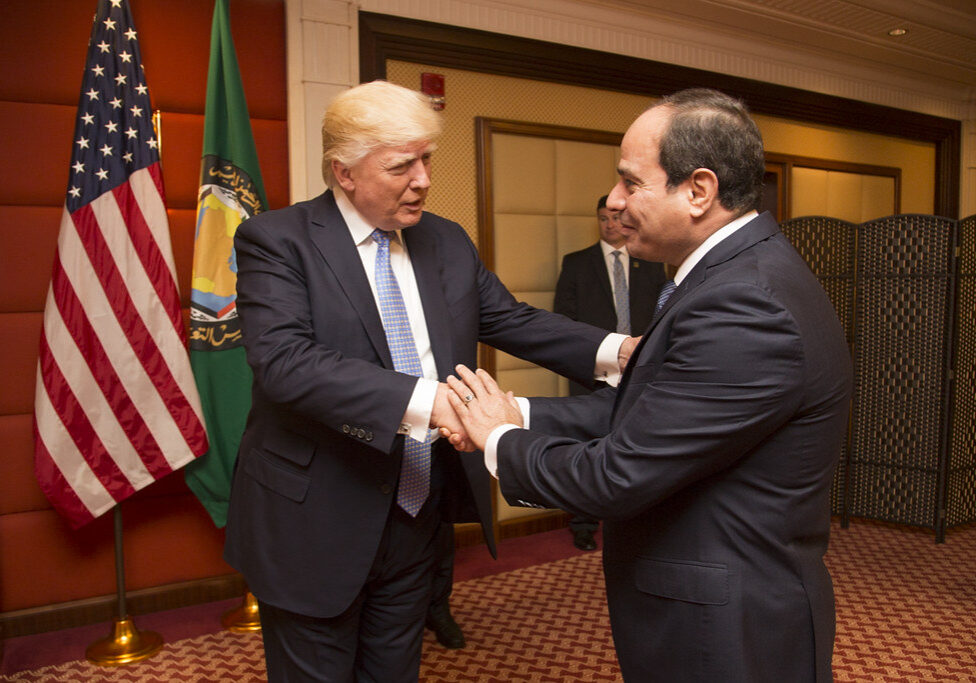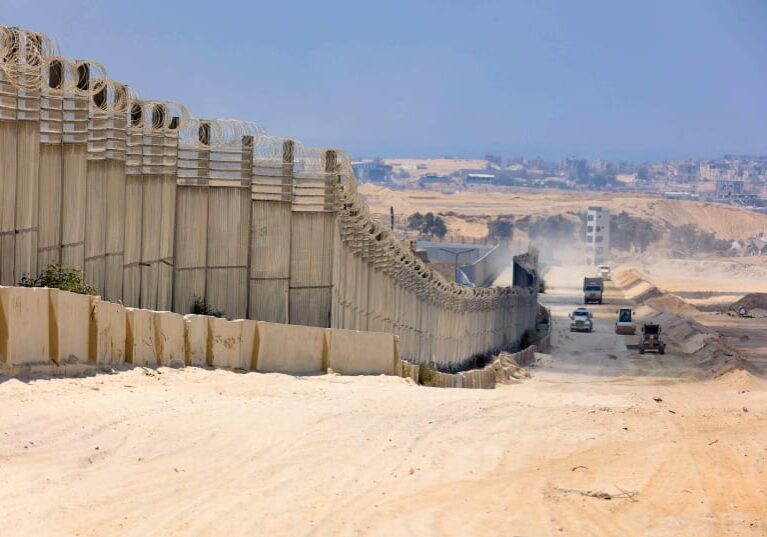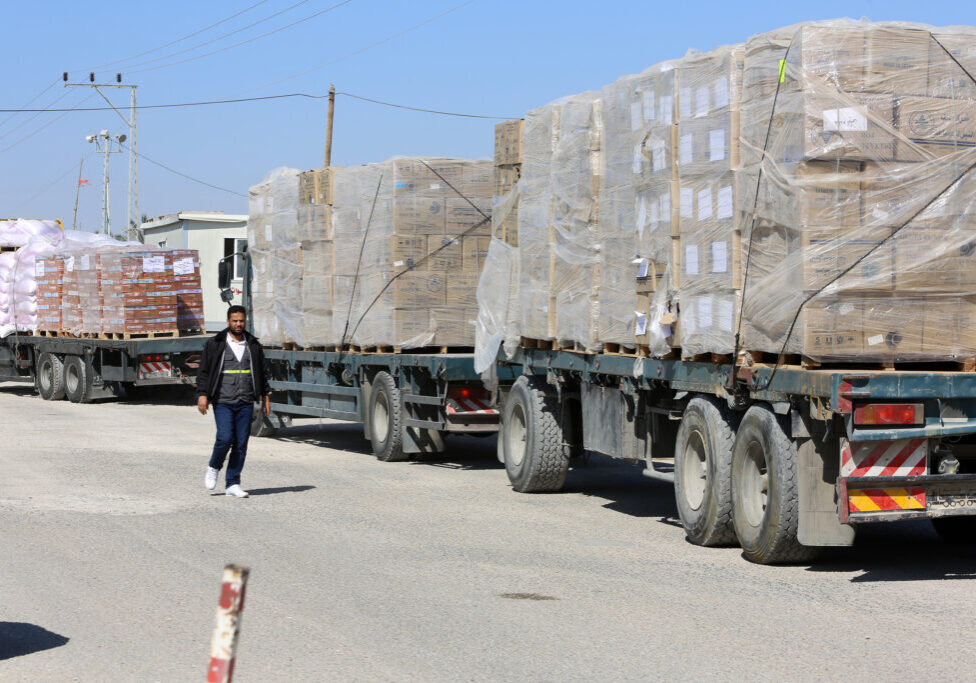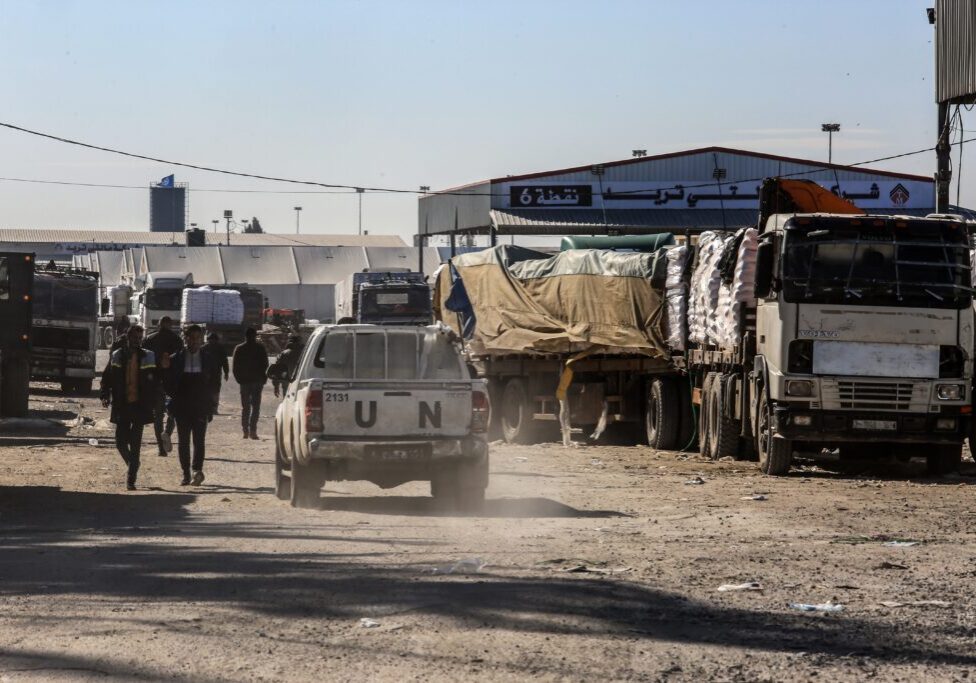Australia/Israel Review
Essay: Springing Forward or Falling Back?
Nov 28, 2011 | Or Avi Guy
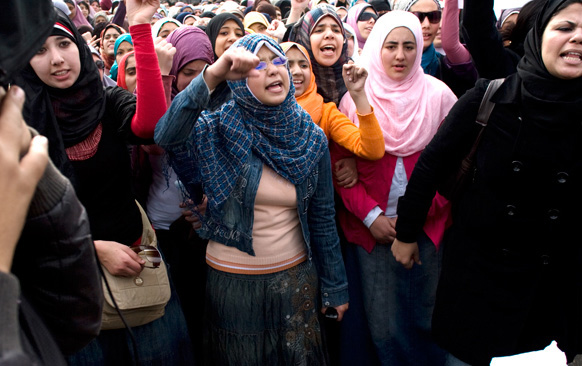
Women’s rights and the Arab revolutions
Or Avi-Guy
Historically, following many of the revolutions in the Arab and Muslim world, previous traditions hindering women’s rights and limiting their role in politics and society have been reinstated.
The deterioration in women’s rights after the revolution in Algeria ended in 1962, and the Iranian Islamic revolution of 1979 created frightening precedents for many women.
Is this recurring in the recent “Arab Spring” revolutions in Tunisia, Libya and Egypt? Women have played a key part in these revolutions, yet some of the new regimes have been quick to reinforce laws and norms that limit women’s rights, justifying it as a return to values undermined or damaged by the previous regime.
During the “Arab Spring” revolutions, hopes for new-found freedom and political liberties surged in Tunisia, Egypt and Libya, as Zine El Abidine Ben Ali, Hosni Mubarak and then Muammar Gaddafi were deposed in popular uprisings. Yet in all three nations, women’s rights appear to have become a divisive issue between parties and factions as they jockey for post-revolutionary power. Traditionalist actors in these societies claimed that women’s rights are a Western value, which should not be imposed on the Arab or Islamic peoples.
The general desire for liberties and participation in politics has stood in contradiction to cultural and religious views regarding women’s status in society which often have strong traditionalist elements, as well as Islamist parties which are the best-organised political alternatives to the dictators.
So what then are the prospects for women in Tunisia, Libya and Egypt? These post-revolutionary societies are still being shaped and, of course, the long-term trends in women’s status in these countries remain unclear, as do the overall political futures of all three.
But this essay offers a preliminary analysis of notable developments, similarities and patterns, in each of these cases.
It should be noted that lack of gender equality might have severe consequences for the democratisation processes since women’s participation in civil society and government are key ingredients for building democratc institutions and modern economies, as the UN’s “Arab Human Development” reports have highlighted.
Tunisia
In comparison to those in many Arab countries, Tunisian women are considered to have been relatively well represented in public, political, social, and religious spheres – 80% are literate, they represent 26% of the working population, 50% of students, 29% of magistrates, 24% of the diplomatic corps, and their representation in parliament is the highest in the region. Therefore, it was expected that after the revolution, the rights of women would be further advanced and not hindered. The relatively progressive stance on women in Tunisian society is rooted in, and accredited to, the 1956 Personal Status Code. In it, polygamy was banned and women and men given equal rights in divorce.
Women in Tunisia enjoyed near equality with men and many are anxious to maintain that position after the revolution. However, post-revolutionary developments reveal a complex reality of contradictory trends.
One positive development in women’s rights was the removal by the transitional government of all specific reservations from the International Convention on the Elimination of all forms of Discrimination Against Women (CEDAW) on August 16, thus negating the use of “Islamic norms and laws” in order to excuse itself from obligations under the international convention. However, it remains unclear if the new parliament is prepared to take legislative action to back up this move. Sharia-based arguments are likely to be raised against amending domestic laws in accordance with CEDAW, as the new Government has declared that it will not enforce CEDAW provisions that contradicts Article One of the Constitution which states that the country’s religion is Islam. Yet so far, Tunisia has not invoked the state religion clause in its constitution to violate CEDAW.
Another problematic signal was the exclusion of women from some aspects of the transition processes after the fall of Ben Ali, such as the Tunisian High Commission for the Realisation of Revolutionary Goals, Political Reforms and Democratic Transition. The interim government included only two female ministers (out of 21); Lilia Labidi, Minister for Women’s Affairs and Habiba Ben Romdhane, Minister of Public Health.
Women’s rights were a key issue in the recent Tunisian elections. Secularist Tunisians raised concerns the popularity of Islamist parties might in the long run reduce women’s status, even though these parties generally publicly proclaimed moderate views on this issue. Promisingly, Tunisia initially seemed to be on the path to ensuring women’s inclusion in the new regime when a gender parity ruling was passed by the Tunisian transitional government (on April 11, 2011), requiring that men and women will feature equal numbers as parliamentary candidates. This was unprecedented in the Arab world and welcomed by both international rights groups and the Tunisian Association of Women Democrats (ATFD).
Yet the lack of gender quotas for seats in the constituent assembly led some to warn that the gender parity law might prove insufficient in practice. Only a few of the 67 political parties which participated in the parliamentary election listed women in leading positions. Women made up only 6% of the leading candidates on the electoral lists, significantly reducing their chances of gaining influence.
Women’s participation in the political sphere was also encouraged via a nationwide campaign to promote voter education and encourage women to register to vote, signalling another positive step towards women’s inclusion in Tunisian politics. The campaign was led by Tunisia’s Ministry for Women’s Affairs, while additional voting campaigns were also carried out by women organisations, working with women sceptical of the democratic process. Islamist conservative women however, opposed aspirations for equality and women’s rights and some even boycotted the election. Despite some opposition, women took an active and visible role in administering the election in Tunisia on October 23, where women won around 25% of the seats in the new Constituent Assembly.
All political parties which won significant parliamentary representation indicated their support for the principles of gender equality and non-discrimination. Since its election into the Constituent Assembly, leading Islamist party Ennahdha (winning 41% of the votes), which was banned under Ben Ali’s regime, has also publicly expressed its disinclination to impose a conservative dress code upon Tunisian women.
In fact, however, Ennahdha’s statements and policies regarding women’s rights have been highly inconsistent. Ennahdha ran only two female candidates across the 33 constituencies they contested in the elections. The party’s officials, including party leader Rachid Ghannouchi, made public statements in support of women’s rights in an attempt to reassure Tunisian women that their status would be protected, even though in the past, Ghannouchi threatened to hang feminist activists Raja bin Salama and Lafif Lakhdar for their criticism of Islamic extremism and the subjugation of women it often initiated.
He even stated at one stage that “the Tunisian woman has not yet acquired leadership status”. While Ennahdha has said that it is not seeking to monopolise power nor to impose a fundamentalist agenda, it has also made statements urging the legalisation of polygamy, in contradiction to the Personal Status Code. There have also been reports of female university lecturers forced to wear a veil in order to be allowed to lecture, and other incidents of coercion of women over their dress.
A number of Tunisian women’s rights and democracy activists have expressed fear that once in power Ennahdha will reveal a more conservative Islamist agenda, and that its moderate discourse is a rhetorical tool to mask fundamentalist views. While Ennahdha’s popularity and statements about polygamy and the veil might seem to some like mild steps, they provide a preview of what Tunisia might become under Islamist rule and are likely to affect the future Constitution and legal and policy structures.
Ennahdha supporters claim that concerns over the future of women’s rights under the Islamist party’s influence are misguided. Some analysts also argue that Islamists in Tunisia will be forced to display pragmatism once given the opportunity to participate in politics, especially given Ennahdha’s expressed willingness to form coalitions with secular parties.
Yet Ennahdha’s bigger challenge might come from another Islamist force – the Salafis, who hold significant political influence, despite the fact that they are not represented by a political party. The Salafis reject female participation in the political or social spheres and are likely to agitate against women’s involvement in public life, even if Ennahdha follows pragmatic policies. This might increase anti-feminism in Tunisian Islamist politics, especially if Ennahdha tries to accommodate more radical Islamist views to pander to or court Islamist voters.
Civil society, which could potentially flourish in the absence of the sorts of controls which the Ben Ali regime imposed, might hold greater opportunities for Tunisian women. Yet currently Tunisian NGOs that promote democracy and political pluralism largely refrain from focusing specifically on women’s rights. Tunisian feminist activist Khadija Cherif takes pride in this situation, saying “the force of the Tunisian feminist movement is that we’ve never separated it from the fight for democracy and a secular society”. But if democracy is the future of Tunisia, something still not guaranteed, groups focussing specifically on women’s issues are likely to be essential in the face of Islamist forces which will likely attempt to use both democratic and non-democratic means to impose greater restrictions on women in line with traditional customs.
Libya
Women played a determinative role in the liberation of Libya and their participation might have changed their role in society. Female leaders founded non-profit initiatives, and several women’s advocacy groups have sprung up, such as a Professional Women’s Committee in Benghazi, Amina Mogherbi’s humanitarian aid organisation for internally displaced Libyans and Amira Jalayde’s initiative to link religious leaders with civil society and the ruling National Transitional Council (NTC).
Libyan women have had the legal right to vote since 1964 and have a long history of organising; the first women’s group dates back to 1955 in Benghazi. Gaddafi, often used rhetoric in support of women; the Charter on the Rights and Duties of Women in Libya (1997) protected some women’s rights such as integration into national security, rights in marriage, divorce and custody, and children’s nationality. It also safeguarded their right to work, social security, and financial independence.
NTC Chairman Mustafa Abdul-Jalil worried many women with his liberation speech on October 23, in which he declared that Libya would be a moderate Sharia country, and its future legal system would be based on Islamic law, which means that certain laws, such as those restricting polygamy, would be voided. Libya’s women and women’s rights’ activists reacted with outrage and concern. Most women seem to trust in the new transitional leadership, and do not generally oppose Islamic law, yet fear that the interpretation of Islamic laws imposed will be too severe and limiting, according to the US Institute of Peace program director in Libya, Manal Omar.
Despite the recent Jalil speech, the NTC leadership, and particularly the Executive Committee, has expressed support for women on several occasions. After the Chairman’s comments triggered angry responses, the NTC stated that there was “no chance” that Libya would become a theocracy. Yet the role of women in the political process remained insignificant under the transition authorities and only two NTC members out of 40 were women when it was formed.
There are several reasons for the lack of women’s participation at the leadership level; area/regional representation, and particularly tribal representation, is prioritised above women’s representation, and some of the tribes and regions oppose women’s political participation. Libyan male politicians claimed that there aren’t any qualified women who can participate in the new institutions, despite comparatively high female professional skills and education levels in Libya. Women account for 25% of Libya’s workforce.
It seems that in Libya’s case, much like in Tunisia, the road to women’s participation starts in civil society initiatives, via human rights groups such as a Benghazi-based Professional Women’s Committee, which supports women’s participation in the new regime, and women-dominated groups involvement in the health and education sectors. However, women’s activity in civil organisations might also restrict women to the humanitarian issues, while allowing exclusion from the political process to persist.
Egypt
In the Egyptian revolution, women played an important role and were key in ensuring that the protests remain peaceful. There are, however, warning signs that during Egypt’s transition previous gains and improvements in women’s status made under Mubarak will be reversed and that they will be increasingly excluded from the process.
Even before the fall of Mubarak, Egypt had seen some regression in terms of the dress codes and other aspects of women’s rights. Headscarves, once uncommon among urban and educated Egyptian women, have become near universal in the past two decades.
So far, the role of women in Egypt’s governance during the transition period has been limited; the major political parties seem unconcerned about the need to include women as candidates, and party leaders have made almost no reference to the promotion of women’s rights. Women were not included on the committee that drafted Egypt’s transitional constitutional declaration, and only one female minister serves in the cabinet (out of 34).
In late July, the Supreme Council of the Armed Forces failed to appoint any females when selecting provincial governors. The Minister of Local Development claimed that women could not be appointed governors because they would not be able to move about freely in the current security environment to address social problems. It has also removed the 64-seat parliamentary quota for women and dismantled the Ministry of Women’s Affairs.
A committee on women overseen by the cabinet was established, but seems likely to have little power or influence. According to the Egyptian Centre for Women’s Rights (ECWR), “The exclusion of women in Egypt turned into a systematic policy.” Some Egyptians are criticising previous gains, like the progressive laws on divorce, and prohibitions against female genital cutting and child marriage, because of the role of Suzanne Mubarak, Hosni Mubarak’s wife, in promoting them.
In the continuing protests after the fall of Mubarak, there have been several disturbing incidents of harassment of women in public spaces; On March 8, International Women’s Day, hundreds of women were attacked as they gathered in Tahrir Square to call for a greater voice in Egypt’s transition. Instead, they found themselves subjected to open physical, sexual and verbal harassment. In May, when the military cleared Tahrir Square, dozens of female demonstrators calling for basic rights to engage in Egypt‘s political future were arrested and detained, subjected to humiliation and degradation and reportedly to “virginity tests”. The transitional government has not formally apologised for the incident, but promised such conduct by police forces will not reccur.
These violent incidents inflicted upon women show that Egypt is facing a challenge in dealing with lawlessness and the incapacity to bring criminal offenders to justice. Egyptian women are facing not only discrimination, but also uncontested violence against them. Women must compete in the public debate against conservative political and social forces, including the Muslim Brotherhood and more radical Salafists, which are taking advantage of Egypt’s more open political atmosphere to undermine and challenge women’s rights.
Egyptian civil society organisations have defended the role of women in the transition and are advocating reforms to protect women’s rights. Egyptian women’s rights groups and democracy activists have continued to publicly raise their concerns about the exclusion of women from power and often rely on CEDAW principles as a foundation of their demands, such as the calls for women to be added to the constitutional committee, for “equal and fair representation of women and young people in all representative bodies,” and for freedom of expression. Activists have achieved some successes in pressuring the Government to live up to its obligations and take action on domestic reforms, but significant progress will probably depend on the nature of the next civilian government and the circumstances under which it succeeds the current military-led interim regime.
Many women who contributed to the Arab Spring revolution in Tunisia, Libya and Egypt hoped that the calls for political freedom would extend to women’s rights. Democratisation, however, also opened a path for Islamists to increase their political influence. These developments created tension between the popularity of the Islamist parties and Salafi influences and more liberal forces calling for gender equality and women’s emancipation.
Attitudes towards women’s rights differ in Tunisia, Libya and Egypt, and yet similarities arise; in all three cases, the reintroduction of once-banned Islamist parties and groups poses new challenges to the achievements of women both prior and during the revolutions. The Islamists’ double-talk and contradictory statements further complicate women’s status in these societies; on one hand they express commitment to women’s rights and their participation in politics, and on the other hand they advocate effectively limiting such participation, reintroducing “Sharia-based” norms such as polygamy, and raise claims about the incompetence or inability of women to serve in public and political positions. Steps taken to increase female participation in the public and political sphere might prove insufficient if attempts to accommodate conservative factors intensify, and women might remain under-represented.
In addition, the legacy of leading figures in the deposed regimes (Leila Trabelsi, Ben Ali’s wife, in Tunisia; Suzanne Mubarak in Egypt; and Gaddafi in Libya) associated with women’s rights undermines the legitimacy of such issues. In all three cases, it seems that women’s best channel of influence remains civil society and action through women’s organisations, which promote not only women’s rights but also human rights and democratic values as well.
Nonetheless, it remains unclear if the Arab Spring revolutions, in which women played an integral part, will, at the end of the day, lead to a spring forward or a fall backwards for the rights of the women of the nations concerned.
Tags: Egypt


